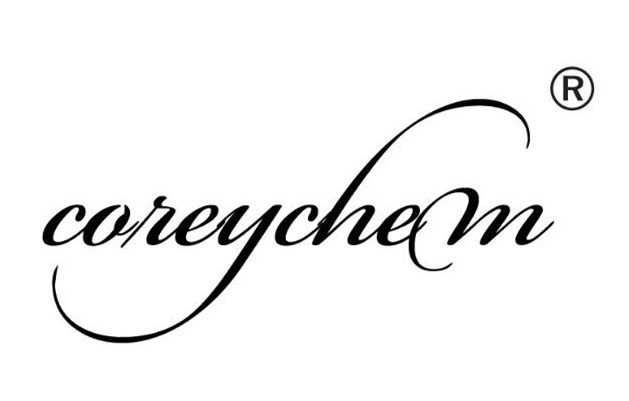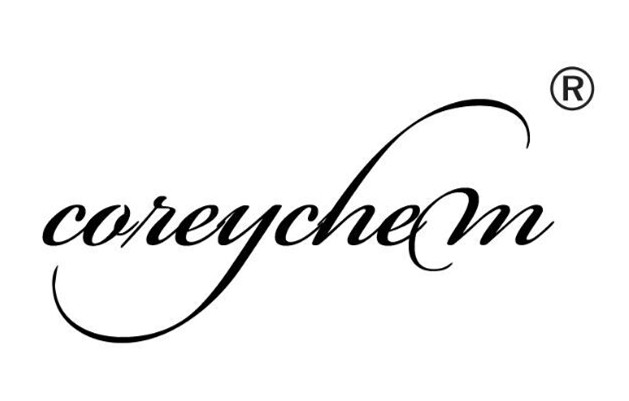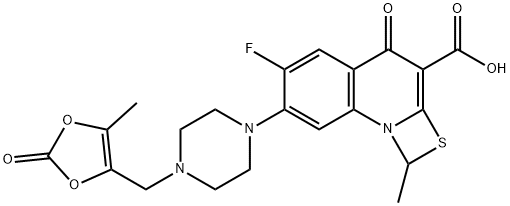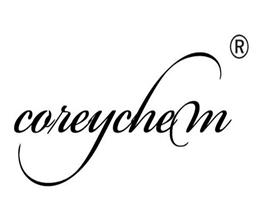1/1
Prulifloxacin
$ 7.00
/1KG
- Min. Order1KG
- Purity99%
- Cas No 123447-62-1
- Supply Ability100KG
- Update time2019-07-06

career henan chemical co
VIP8Y
 China
China
Since:2014-12-17
Address:Zhengzhou High tech Zone, Henan Province, China
Enterprise Verified
Business Bank account
Basic Contact Infomation
Business Address
Trade Company



Chemical Properties
| Product Name | Prulifloxacin |
| CAS No | 123447-62-1 |
| EC-No | |
| Min. Order | 1KG |
| Purity | 99% |
| Supply Ability | 100KG |
| Release date | 2019/07/06 |
JD607 048
| Product Name: | Prulifloxacin |
| Synonyms: | 1h,4h-(1,3)thiazeto(3,2-a)quinoline-3-carboxylicacid,6-fluoro-1-methyl-7-(4-(;3-dioxol-4-yl)methyl)-1-piperazinyl)-4-oxo-(5-methyl-2-oxo-;nm441;PRULIFLOXACIN;SEA BUCKTHORN P.E 20%;Prulifloxacine;PRULIFLOXACIN(FORRESEARCHONLY);(+/-)-7-{4-[(Z)-2,3-Dihydroxy-2-butenyl]-1-piperazinyl}-6-fluoro-1-methyl-4-oxo-1H,4H-[1,3]thiazeto[3,2-a]quinoline-3-carboxylic acid cyclic carbonate |
| CAS: | 123447-62-1 |
| MF: | C21H20FN3O6S |
| MW: | 461.46 |
| EINECS: | 819-932-1 |
| Product Categories: | API;Other Products;Aromatics;Heterocycles;Intermediates & Fine Chemicals;Pharmaceuticals;Sulfur & Selenium Compounds;QUISNON |
| Mol File: | 123447-62-1.mol |
 |
|
| Prulifloxacin Chemical Properties |
| Melting point | 211-214°C |
| storage temp. | -20°C Freezer |
| solubility | 1 M NaOH: soluble25ML, clear, colorless (Solvent: 1 mg + 25 mL of NaOH) |
| λmax | 276nm(H2O)(lit.) |
| Merck | 14,7908 |
| CAS DataBase Reference | 123447-62-1(CAS DataBase Reference) |
| Safety Information |
| RTECS | XJ0600000 |
| MSDS Information |
| Prulifloxacin Usage And Synthesis |
| Abstract | Prulifloxacin, a prodrug of Ulifloxacin inhibits replication of bacterial DNA (nuclear material) by inhibition of DNA-gyrase in microbes, is a newer class of fluoroquinolone exerts broad-spectrum anti-bacterial activity against several Gram-positive and Gram-negative organisms. Prulifloxacin is generally prescribed for the treatment of uncomplicated lower urinary tract infections, acute exacerbations of chronic bronchitis and complicated lower urinary tract infections. |
| Quinolone antibiotics | Prulifloxacin is a quinolone antibiotic, a fluoroquinolone antibiotics prodrug NM394 by the Japan Pharmaceutical Co. and Meiji Seika Kaisha, Ltd. joint research and development in the late eighties, and it was first approved for marketing in December 2002 in Japan. the dosage form is 100mg tablets, by inhibiting bacterial DNA topoisomerase ⅱ and ⅳ activity and bacterial DNA synthesis, completing sterilization, which is different from the traditional model, without drug resistance to other classes of antibiotics. It is used for the treatment of respiratory gram-positive bacteria and negative bacteria clinically, which is caused by infections, urogenital infections, otolaryngology infection, biliary tract infections, enteritis, skin and soft tissue infections and surgical infections. Notable features are as follows:
|
| Indication | It is used for the treatment of prulifloxacin sensitive staphylococcus, streptococcus, Neisseria gonorrhoeae, (except typhoid, paratyphoid) pneumoniae, Enterococcus, Moraxella Alex Salmonella, E. coli, Shigella, Salmonella, lemon acid bacteria, Klebsiella pneumoniae, Serratia, Proteus, Vibrio cholerae, Pseudomonas aeruginosa, Streptococcus digestion, they can cause the following infections:
|
| Pharmacokinetics | After oral administration, Prulifloxacin is rapidly metabolized as an active form of drug, Ulifloxacin. The drug exerts good penetration into the target tissue with prolonged elimination half-life with once-daily administration. After absorption, Cmax is generally achieved within one hour, and apparent Vss is 1231 L. About 45% of the administered drug is bound to plasma proteins. The drug is extensively metabolized by first-pass metabolism into active metabolites. The terminal half-life of Ulifloxacin is 10.6-12.1 hours. The drug is mainly excreted via the urine as unmetabolized drug. |
| Prulifloxacin Intermediate | Prulifloxacin Intermediate PL-7 Appearance: white to light yellow powder Chemical name: 6,7-difluoro-2-mercapto-ethyl-4-hydroxy-quinoline-3-carboxylic acid ethyl ester CAS: 154330-68-4 Molecular Formula: C14H13F2NO3S Prulifloxacin intermediate PL-9 Appearance: white to light yellow powder Chemical name: 6,7-difluoro-1-methyl-4-oxo--4H-(1,3) thiazine (3,2a) and quinoline-3-carboxylate CAS: 113046-72- Molecular Formula:C14H11F2NO3S Prulifloxacin Intermediate PL-10 Appearance: white to light yellow powder Chemical Name: 6-fluoro-1-methyl-4-oxo-7-(1-piperazinyl) 4H-(1,3) thiazine (3,2a) and quinoline-3-carboxylate CAS: 113028-17-4 Molecular Formula:C18H20FN3O3S Prulifloxacin Intermediate PL-11 Appearance: white to light yellow powder Chemical Name: 6-fluoro-1-methyl-4-oxo-7-(1-piperazinyl)-4H-(1,3) thiazine (3,2a) and quinoline-3-carboxylic acid CAS : 112984-60-8 Molecular Formula:C16H16FN3O3S Application:For the total synthesis of gatifloxacin antibacterials |
| Side effects | Abdominal cramp, Confusion, Diarrhoea, Drowsiness, Altered taste, Epigastric pain, Gastritis, Headache, Hot flashes, Increased bilirubin in the blood, Itching, Loss of appetite, Sedation, Skin rash, Sleep disorder, Vomiting, Nausea. |
| References | https://www.ncbi.nlm.nih.gov/pubmed/15456336 http://www.drugsupdate.com/generic/view/1110/Prulifloxacin |
| Description | Prulifloxacin was launched as the third fluoroquinone. It was introduced in Japan as an oral treatment for urinary tract infections (UTls), respiratory tract infections (RTls) and bacterial pneumoniae. It can be synthesized in 10 steps from commercially available 3,4-difluoroaniline. Key steps involve the cyclization of 6,7-difluoro-rl-hydroxy-2- thioquinoline-3carboxylic acid ethyl ester with 1 ,I-dibromomethane to give the corresponding thiazeto-[3,2a]quinoline. Aromatic nucleophilic substitution of the 7-fluoro atom with piperazine followed by hydrolysis of the ethyl ester and finally alkylation of the piperazinyl moiety with 4-(bromomethyl)-5-methyl-l ,bdioxol-Bone complete the synthesis. Prulifloxacin is a lipophilic prodrug, which is rapidly hydrolyzed to the corresponding Ndealkylated piperazine, NM 394, by paraoxonase type enzymes in blood and liver following intestinal absorption. The DNA gyrase inhibitor NM 394 accounts for all antimicrobial activity: it shows a similar or greater activity against gram-positive bacteria compared to ciprofloxacin, and a greater activity in the case of gram-negative bacteria. In clinical studies, prulifloxacin has shown good efficacy against UTls and RTls. The drug is mainly excreted in the urine and in the feces as unchanged NM 394, which has a plasma half-life of approximately 8 h. Phototoxicity in animal models is less severe than with other quinolones. Prulifloxacin is well tolerated with an adverse effect profile similar to that of other fluoroquinolones. |
| Chemical Properties | Off-White Solid |
| Originator | Nippon Shinyaku (Japan) |
| Uses | Fluoroquinoline antibacterial; prodrug for active metabolite, Ulifloxacin. Antibacterial. |
| Uses | Prulifloxacin is a synthetic chemotherapeutic antibiotic of the fluoroquinolone drug class. Prulifloxacin is a prodrug for active metabolite, Ulifloxacin. Antibacterial. |
| Brand name | Sword |
| Pharmaceutical Applications | A lipophilic prodrug which is very rapidly metabolized by esterase into ulifloxacin, a 6-fluoro, 7-piperazinyl thiazetoquinoline. Ulifloxacin is moderately active against Staph. aureus (MIC 0.4–0.8 mg/L) and inactive against Str. pneumoniae (MIC 2–8 mg/L) as well as against Enterococcus spp. Against Enterobacteriaceae (MIC 0.05–0.8 mg/L) and Ps. aeruginosa (MIC 0.2–0.8 mg/L) activity is similar to that of ciprofloxacin. It is active against fastidious Gram-negative bacilli, but not against anaerobes and non-fermentative Gram-negative bacilli. Activity against Acinetobacter spp. is modest. Prulifloxacin is rapidly converted into ulifloxacin and after 3 h is no longer detected in blood. In volunteers receiving a single oral dose, peak plasma concentrations of 0.68 mg/L (300 mg dose) to 1.88 mg/L (for 400 mg dose) were attained between 0.67 and 1.25 h. The mean apparent elimination half-life was 8 h and the mean cumulative elimination rate in urine within 48 h was 31–46%. Other inactive metabolites account for 7% of the dose. Half the administered dose is eliminated in feces within 72 h as ulifloxacin and 4% as prulifloxacin. Protein binding is 45%. |
Company Profile Introduction
Established in 2014,Career Henan Chemical Co. is a manufacturerspecializing in the sale of fine chemicals. Mainly deals in the sales of: Pharmaceutical intermediates OLED intermediates: Pharmaceutical intermediates; OLED intermediates;

